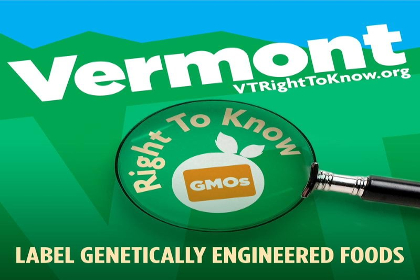
GMO Lobbying Spiked 31 Percent in First Quarter
As the Senate geared up earlier this year to debate legislation establishing a nationwide, voluntary system for labeling foods made with genetically modified organisms, so did K Street.
But for all the lobbyists, public campaigns and press releases, Congress couldn't agree on a national labeling standard. The status quo prevailed, and Vermont, population 626,000, whose mandatory GMO labeling law is set to go into effect July 1, could start a domino effect of other states crafting their own labeling rules.
May 6, 2016 | Source: Bloomberg BNA | by Casey Wooten
As the Senate geared up earlier this year to debate legislation establishing a nationwide, voluntary system for labeling foods made with genetically modified organisms, so did K Street.
But for all the lobbyists, public campaigns and press releases, Congress couldn’t agree on a national labeling standard. The status quo prevailed, and Vermont, population 626,000, whose mandatory GMO labeling law is set to go into effect July 1, could start a domino effect of other states crafting their own labeling rules.
“We had been telling lawmakers that we needed this done by the first of the year, and here we are in May with about 56 days before enactment,” Mike Gruber, senior vice president for federal affairs at the Grocery Manufacturers Association, which represents food producers and retailers such as Publix Super Markets Inc. and General Mills Inc.
31 Percent Jump
According to lobbying disclosures provided by the Senate Office of Public Records, the number of groups filing reports citing “GMO labeling” as an issue of focus spiked 31 percent between the fourth quarter of 2015 and the first quarter of 2016, increasing from 49 companies, trade groups and advocacy organizations to 64.
That jump continues an upward trend over the past year. In the first quarter of 2015, only 24 groups filed lobbying reports citing “GMO labeling” as an issue.
The spike signifies an increasing sense of urgency as the Vermont law looms, particularly for advocates of a voluntary system. It also coincides with legislation (S. 2609) introduced by Senate Agriculture Committee Chairman Pat Roberts (R-Kan.) that would preempt the Vermont law and create a national, voluntary labeling standard.
